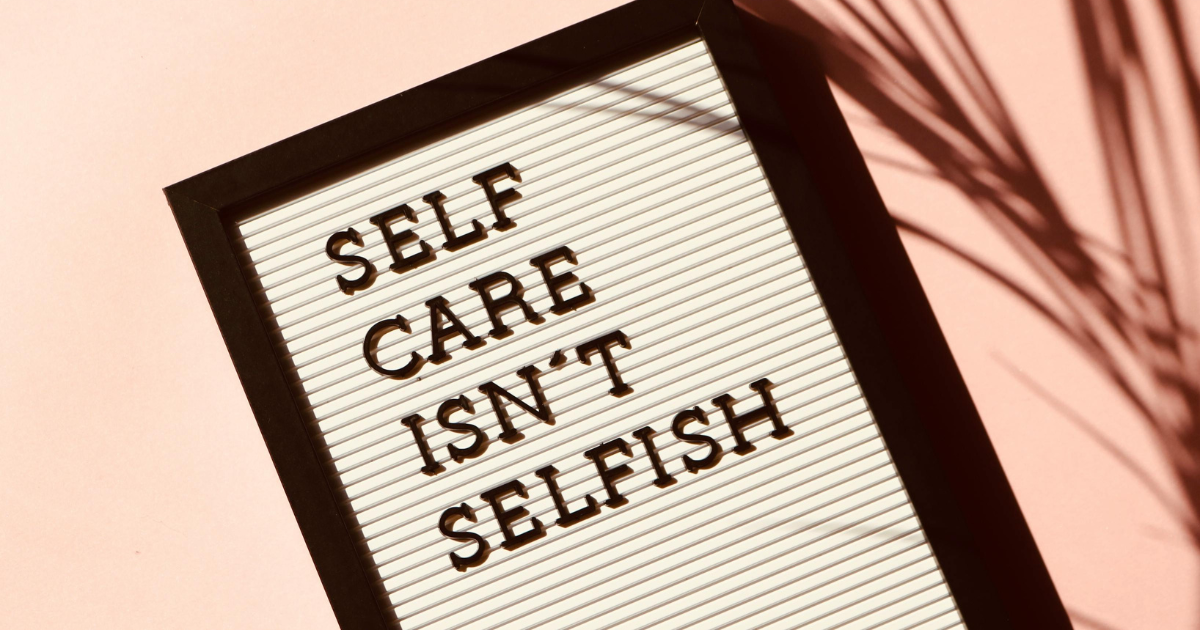Different phases of life call for strength, resilience, and reliable support. While individual therapy, medication, and personal self-care are often crucial, the importance of community support in mental health recovery cannot be overstated. Engaging with a supportive community has a profoundly positive impact, helping individuals build emotional, social, and psychological resources that foster healing and growth.
Anyone embarking on the journey of managing their mental health must recognize how community resources, especially support groups, can be facilitators and accelerators of recovery. This post examines community-based recovery’s role in mental health, why an individual needs mental health and community support, and practical ways of leveraging these resources for better outcomes.
Types of Community Support for Mental Health
Community support often represents groups of people pulling together for a common cause. For people living with mental health issues, it takes on countless other forms, from peer support groups to online forums. Let’s look at some of the most common types of community support for mental health:
Peer Support Groups
One of the best interventions for recovery in terms of mental health is the principle of support groups from peers. These are comprised of people who share the same experience with psychological disorders, meet to narrate their stories, give advice to one another, and mutually support each other.
Mental health support groups are highly effective, offering a safe space where individuals can share their fears and challenges without fear of judgment. Whether it’s an anxiety and depression support group or an addiction recovery group, the shared experiences among participants foster a unique sense of understanding and empathy. These groups are often led by professionals or peers with firsthand knowledge, creating a supportive environment where individuals feel seen, heard, and validated.
The benefits for these peer groups are immense. In a way, people suffering from Mental health feel less lonely when they think of others who have been in their shoes, too. The kind of advice and ways of dealing they offer make coping with the bad times as well as the good easy. Most importantly, they empower people to take an active role in the healing process, which enhances their resilience and confidence.
Family and Friends Support
Although peer support through mental health support groups is invaluable, the role of family and friends in an individual’s recovery cannot be underestimated. Emotional stability, encouragement, and a feeling of belonging are critical components of recovering from mental disorders, which loved ones efficiently provide.
Family support can be very conceptual and may include providing a listening ear and practical help, such as attending appointments or assisting with daily tasks, and just being there during rough moments. Family members have to educate themselves about mental health issues so that they can give the best support and, therefore, minimize the chances of unknowingly perpetuating stigma.
Friends also provide a safe place for fun and relaxation, so helping to reduce stress. However, most individuals and their friends might need help understanding the magnitude of what they are going through. Support groups bridge this gap by providing further tools for individuals and their loved ones.
Online Communities
In the contemporary online world, online communities are an important safety net for many individuals struggling with mental health issues. Here, they find a platform that offers anonymity while bringing them closer to one another across the globe.
Of course, online platforms allow the sharing of stories and questions and the gathering of advice from people who are not necessarily geographically proximate. Whether it is a Facebook group, a conversation on a Reddit thread, or one of the various mental health-focused online forums, digital communities offer the benefit of anonymity that makes people feel more comfortable sharing their struggles.
Online communities are also generally more flexible than in-person ones and, therefore, permit members to participate anytime they feel like it. They also undercut geographical barriers, often presenting obstacles for people in the “boonies.”
Local Community Programs
These programs provide group and individual support to those engaged in community-based mental health recovery efforts. They encompass various services, including employment opportunities, group therapy sessions, outreach initiatives, one-on-one mentoring, support services, and wellness programs.
Some nonprofits, churches, government agencies, or private organizations usually make these local programs available. Most of these tend to be less stigmatizing about issues concerning mental health while providing open and nonjudgmental spaces for this type of support and guidance. For most of these patients, participating in the local community resources becomes a crucial step in recovery.
Community programs also fill the gap between professional care and informal support. They can be a place of aftercare for those leaving inpatient care or an avenue for people to connect with others who understand such a journey.

Benefits of Community Support in Mental Health Recovery
Community support plays a crucial role in mental health recovery and should not be overlooked. Research highlights that strong social connections and active community involvement are essential for improving mental well-being. Let’s explore some key benefits of mental health support within a community.
Emotional and Social Support
In its essence, community support provides emotional and social support. The mere existence of a supporting environment can sometimes act as a buffer against some of the adverse effects of stress, anxiety, or depression. Generally, support groups provide mental health subjects with a feeling of belonging as well as safety in dealing with challenging emotions.
Being with others who understand your challenges creates empathy and compassion. It makes people feel heard, understood, and validated, which makes them more open to re-establishing self-esteem and confidence.
Increased Sense of Belonging
For most people struggling with mental illness, isolation is a trigger for hopelessness and despair. Community support and mental health answer that isolation, building a stronger sense of connection and belonging to others.
A sense of belonging makes a person feel not lonely, as mental health disorders often do. It enables interaction with others in a meaningful way, which can be highly therapeutic for the individual. Depending on whether it’s a support group, a local program, or a sense of belonging is an essential ingredient of recovery.
Reducing Stigma Around Mental Health
The most effective advantage of community-based mental health recovery is its ability to reduce stigma around mental health issues. A person within the community going to a support group or discussing their experiences in a different community outlet can reduce the stigmas and educate people about mental health issues.
The stigma surrounding mental health often forbids an individual from receiving help. Still, if this subject is widely discussed openly in communities, people will easily open up their lives. The change in societal outlook creates an ease towards others to seek support and treatment with no fear of judgment.
Accountability and Encouragement
Another essential advantage of community support is the accountability and encouragement it provides. If a person is alone, they tend to lose strength and momentum during recovery. However, a community that is there to support would keep them motivated to continue the healing journey.
Support groups and community activities give a scaffold of encouragement and accountability to help patients adhere to their treatment plans, therapy appointments, and wellness goals. If people feel supported, they tend to get better more easily over such adversities and challenges and achieve success in their recovery programs in the long term.
Examples of Community Support Programs
Some of the most recognized community support programs focus on recovery from a mental health condition. Examples:
- National Alliance on Mental Illness. NAMI provides support groups, education programs, and advocacy efforts for peer supporters who are affected by a mental health condition.
- Crisis Text Line. This free private texting service connects people with trained volunteers who can then help people get through difficult moments in a safe space.
- AA and NA. Peer support groups are two of the most recognizable groups for addiction recovery.
- Online Communities. Sites such as the group on Reddit known as r/depression and r/anxiety exist.
These few local and national programs are available to those who require them.
How to Find the Right Community Support for Your Needs
Determining your appropriate community-based mental health recovery program is entirely dependent on specific needs, preferences, and circumstances. A starting point is listed as follows:
- Evaluate Your Needs. Do you need peer support, professional therapy, or a mix of both? What sort of community setting would best make you feel comfortable?
- Research Local and Online Resources. A person can discover mental health support groups, programs, or digital communities near their location or online.
- Ask for Recommendations. Talk with a healthcare provider or a network of support for recommendations on trusted programs.
- Try Different Options. Feel free to try other groups or programs before finding the right one.
Challenges and Barriers to Accessing Community Support
Although community services are integral, there are significant challenges to accessing the support services needed. Some of them are:
| Challenges | Description |
| Geographical Limitations | The availability of certain in-person services may be severely restricted in rural settings. |
| Stigma | The fear of judgment or being misunderstood may deter others from seeking support services. |
| Financial Limitations | Some community services are not free or may require transport; this can be a problem for many others. |
| Cultural Differences | A cultural variation in language could make a difference in individuals’ access to such community resources. |
The Future of Community-Based Mental Health Recovery
With the increased public awareness of mental health issues, there is more interest in community-based recovery. Just as modern digital platforms have provided access to something previously unavailable, this is most likely to continue with mental health support to become more accessible, inclusive, and integrated into different settings within a community.
If you’re among those fighting against mental illness or someone in your contact list, here’s something that reminds you that no one has to go through such distress alone. Reach out to a mental health support group, a community program, or an online community and get their support. Connecting to other people and utilizing all available resources opens the door for an important journey toward recovery and improved mental well-being.

FAQs
- How does community support help in mental health recovery?
Community support offers emotional, social, and practical assistance, reducing isolation and fostering a sense of belonging, which is crucial for recovery.
- What are mental health support groups?
Mental health support groups provide a safe space for individuals to share experiences, gain coping strategies, and receive support from peers who understand their challenges.
- Are online communities effective for mental health support?
Yes, online communities offer access to support, reduce stigma, and provide a safe, anonymous environment for individuals to connect with others facing similar mental health issues.
- What are the benefits of community-based mental health recovery?
Community-based mental health recovery provides emotional support, accountability, and a sense of belonging, all of which are essential for long-term mental health improvement.
- How can I find the right community support for my mental health needs?
Look for local mental health support groups and online communities, or consult a healthcare provider to find a program that aligns with your recovery goals.








